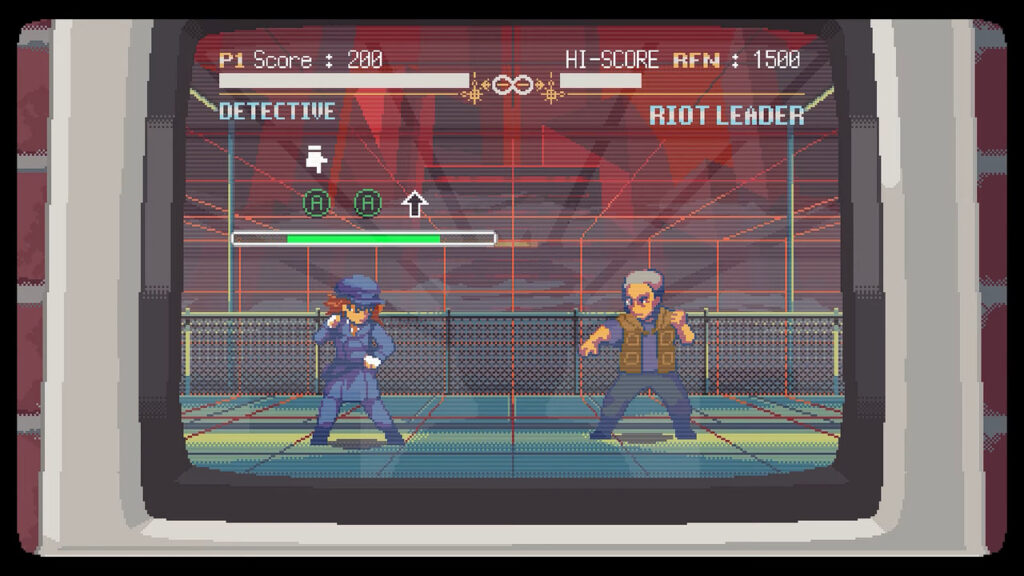
Developer: Mojiken Studio
Publisher: Toge Productions, Chorus Worldwide
Platform: Switch, PC, PS4, PS5, Xbox One, Xbox Series X|S
Tested on: Switch
A Space for the Unbound – Review
Two years ago, we reviewed When the Past Was Around, a point-and-click puzzle adventure by Indonesian developer Mojiken Studio. It was a fantastic game, as evidenced by our review, even if it didn’t enter the mainstream consciousness. The developer returns now with a spiritual successor to that hidden gem, titled A Space for the Unbound. Given how good the predecessor was, we were more than eager to dive into what A Space for the Unbound had to offer. Can Mojiken Studio keep up a winning streak with this new release or was When the Past Was Around a one-hit wonder?
Story
Set against the background of 1990s rural Indonesia, A Space for the Unbound puts players in the shoes of a schoolboy named Atma. He isn’t your ordinary high schooler, as he has access to a magical notebook that grants him the ability to travel through time as well as enter peoples’ minds. It’s a set of powers that is going to turn out to be incredibly handy, as strange things have been happening around Atma’s hometown and our hero is plagued with nightmares. How do these connect to what is happening in the town? And what role does Atma’s girlfriend Raya have to play? The budding relationship between Ama and Raya is central to the story, and the tale that unfolds is a coming-of-age story for our young heroes. We won’t delve into spoiler territory too much as A Space for the Unbound is a game that relies on telling a gripping and compelling story with plenty of twists and turns.
The mystery at the center of the main storyline is the driving force behind A Space for the Unbound but it is far from the only element that makes the game a narrative masterpiece. The excellent world-building and fleshed-out cast of characters lend an air of authenticity to the town, and the writing carefully balances out serious moments with light-hearted ones. For a story that involves magical powers, A Space for the Unbound is surprisingly grounded in reality, and there is a sense of character growth when it comes to Atma himself, which really helps sell the overall narrative. The game isn’t afraid to touch on heavier topics, including mental health issues and depression, but it does so in a respectful and relatable manner. This does mean that the game isn’t going to be suitable for everyone, however. There is a warning about this kind of content when you boot up the game, and we can confirm that it’s there for good reasons.
Graphics
Although A Space for the Unbound makes use of pixel art, the game doesn’t fully embrace the retro approach commonly associated with this. Aesthetically, A Space for the Unbound looks and feels like a modern game, and it’s this juxtaposition of a current-day art direction against era-appropriate 1990s design elements that allows the game to cement its unique visual identity. Those are a lot of fancy words to essentially say that this is a very pretty and unique-looking game. While we’ve never been to Indonesia ourselves, we can say that A Space for the Unbound’s visuals at least immersed us in the idea of what life over there was like in the 1990s. Environments are varied and filled with lavish details and we caught ourselves simply pausing to gaze over the gorgeous art that was displayed in front of us. This is a game well worth playing on a bigger screen, despite everything being presented in pixel art.
Sound
The sound design is equally intricate and impressive. A Space for the Unbound may not have voice acting, but it more than makes up for this with a varied atmospheric soundtrack that seamlessly and dynamically shifts between melodies to match the on-screen events. Ranging from serene music to tense tunes, the soundtrack captures the emotional story beats perfectly. Likewise, sound effects all feel like they serve a purpose here and really help to bring the world to life and place the characters in reality.
Gameplay
For the most part, A Space for the Unbound sticks to the conventions of the point-and-click adventure genre. While this does mean that the overall gameplay feels straightforward and isn’t going to blow anyone’s mind, this approach does give the story ample room to shine. Taking control of Atma, you’ll explore the town, talk to NPCs, collect key items, and solve logic puzzles. The game’s focus is more on delivering an engaging narrative but there is plenty here to keep your attention throughout, including QTEs. These ensure that you feel like you’re actually engaging with the game rather than watching a movie play out. There are also references and easter eggs related to other games that influenced Mojiken Studio, and these cover a wide range of games, from Street Fighter to Ace Attorney and everything in between.
One small gameplay element that sets A Space for the Unbound apart from other games in the genre is the implementation of “spacediving”, which is how Atma’s mind-reading ability is presented in-game. When Atma makes use of space diving, he literally enters the psyche of another character, a la Inception. By blending the real world with the subconscious of its inhabitants, different approaches to classic puzzle gameplay are implemented. A good example of this is a puzzle where Atma is tasked with collecting ingredients to bake a cake, and collects fresh fruit by spacediving into a character’s memories. It’s an interesting twist, although it doesn’t really change the core point-and-click gameplay loop.
The puzzles might not be the most challenging out there, but many of them do have ties to the overarching narrative rather than feeling disconnected from it. It makes it difficult to mention specific examples, as we want to avoid giving away too much of the story. Aside from the main story, there are several sidequests and optional tasks, such as finding and collecting hidden bottle caps, giving a name to every cat you encounter in the game, or trying to beat the high score of Atma’s favorite arcade game. These side activities are insignificant to the overall flow of the game, as they don’t have any influence on how the story plays out, but they do help with making the world feel more filled and alive. These side quests also don’t offer enough incentive to return to the game after you complete it, and since there are no branching endings, it’s likely that you’ll only play through A Space for the Unbound once and be done with it.
There are a handful of areas where A Space for the Unbound drops the ball when it comes to its gameplay. For one thing, the pacing of the main quest is occasionally awkward, with specific sections that feel like they are there simply to pad the game’s runtime. A particularly egregious section appears late in the game and repeatedly requires the player to travel back and forth through time in order to move a bulldozer around. Given the amount of backtracking required, the inclusion of fast travel or even an in-game map of the sleepy Indonesian town would have been very welcome here. With a 15-hour runtime and little to no replayability, some players might feel like they might not be getting a lot of bang for their buck either, although after having actually played A Space for the Unbound, we’d say that we’d have preferred a tighter, more focused version. It might not be a very long game, but as mentioned before, there is some unnecessary padding. That said, there is a lot to love here, and ultimately, A Space for the Unbound will linger with you long after the credits roll.
Conclusion
A Space for the Unbound doesn’t particularly impress with its gameplay but the excellent art direction, strong cast, and gripping narrative make the game definitely worth playing. The unnecessary padding prevents the game from really reaching the same heights as its predecessor but that was a very high bar to clear anyway, and we’d still say that this game manages to feel special. This isn’t a title for everyone, not in the least because it deals with heavy themes, but if you happen to be in the niche that A Space for the Unbound targets, then you’re going to absolutely fall in love with it.
A Space for the Unbound - Review,









No Comments